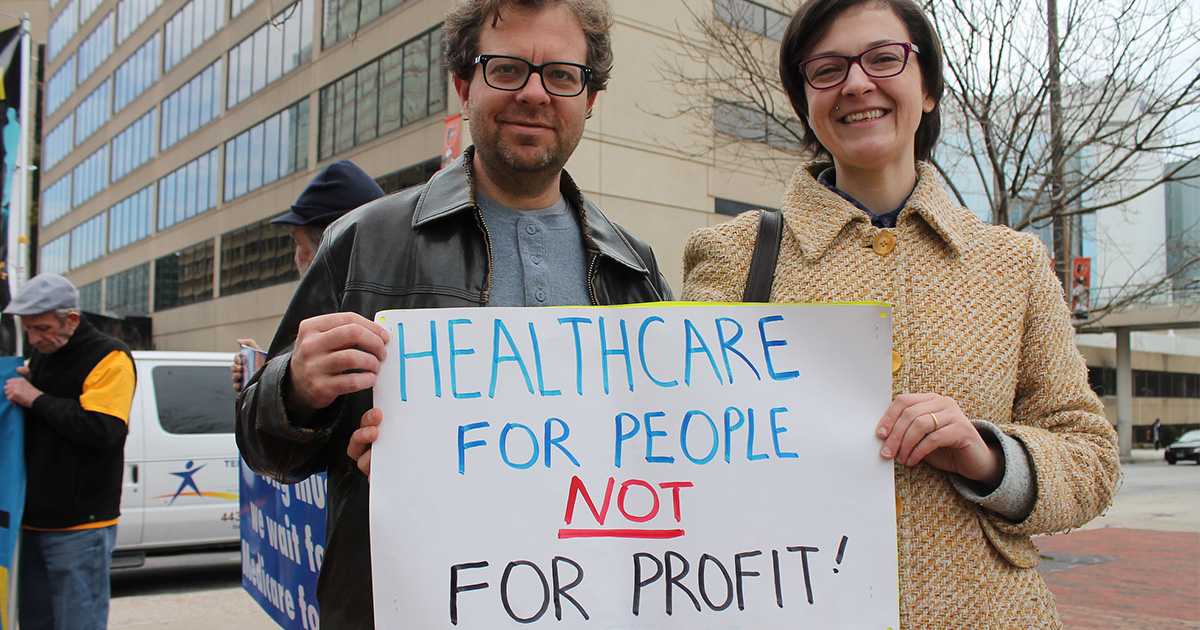Health for Profit: Why Saving a Life Can Cause Resentment

By:
If you spotted me in agonizing pain on the side of the road, my body scratched up and presumably riddled with fractures, and decided to call an ambulance on my behalf—I just might consider that an act of malice. At least in the United States, where trying to save someone’s life might very well ruin it.
That’s the point Dr. Farzon A. Nahvi makes in a recent piece published by The New York Times. An emergency room physician, Nahvi recounts how disheartening it is to see the people that he works to save acting ungrateful to be alive. They act that way not because they’re bad or rude people, but because in a for-profit system, the good Samaritan is often followed by the debt collector.
Nahvi cites examples of patients who have been brought in to his ER without their consent.
“All three of them had ambulances called on their behalf by bystanders,” he writes. “All three of them, unconscious for some or all of their care, had no say in whether they would be treated. All three of them were saddled with gigantic medical bills that they had absolutely no say in."
For those with inadequate health insurance, or no coverage at all, being alive can seem almost like a fate worse than death. Just getting to the hospital alone can drain a bank account in a country where more than half the population has less than a grand in savings.
“This man’s 2-mile ambulance ride cost $2,700,” reports one USA Today headline. “Is that normal?”
Such an experience isn’t unusual, the article concludes, and even with relatively good insurance, the ride wound up costing $770.30 out of pocket.
But it’s not so normal in other places. Take for instance almost every other developed country in the world, that treats public health as a public—not private—matter.
 Flickr/Elvert Barnes - flickr.com
Flickr/Elvert Barnes - flickr.com
And it’s not just in developed countries, either. Ecuador, a South American country with an economy the size of that in the poorest state in the U.S., has a national health care system. That means citizens can walk into a hospital, get seen by a doctor, and get the care they need without pulling a dime out of their wallet.
Having lived there for a year, I saw what that meant to people in practical, everyday terms. Taking a bus home late one night in the capital of Quito, I saw a woman lying on the side of the road, having run over a large pothole with her bicycle. She seemed dazed, and she was definitely in pain. And she did not seem, as much as one can judge such things, to be particularly well off.
The bus pulled over and people got out to see if they could be of assistance.
“Would you like me to call an ambulance?” someone asked, and she nodded yes. That made me think: What if this had happened to me, in California, where as an uninsured freelancer even the flu cost me $400 at an urgent care center? I know what I would have done.
“I’ll be fine,” I would have said, blood coming out my mouth. Knowing that a “yes” would have cost me hundreds of dollars in the best of cases, I would have tried to make it home and had a friend read me relevant WebMD entries. If something was broken, it could wait until the morning, and even then, I would probably wonder, "are we absolutely sure hot water with lemon can’t cure it?"
This shouldn't be a plausible reaction to an injury and people shouldn't have to forego necessary treatment to stave off a bankruptcy. And these emergency room examples don't even take into account less immediate cases. What about when someone has a long-term illness like cancer or lupus or chronic depression, doesn’t have insurance and makes too much to qualify for Medicaid?
When people argue for a “single-payer,” Medicare-for-all health care system in the U.S., they are arguing for a system where one could get treatment they need, not only when they are gravely and immediately unwell, at no individual cost. In a sense, they’re also arguing for extending the moral principle that informs all emergency room procedures. No one is turned away when they arrive at an ER and the same concept ought to apply to other serious health issues. Creating a the type of universal healthcare system shared by almost all of the developed world would address both the exorbitant costs of ER visits and the needs of people with more chronic health concerns.
If Ecuador can do it, the inability of the the United States to do so is a matter of deliberate choice.
“We know that in an empathetic and caring society, life is valued above all else,” Nahvi writes, “especially when the life in question is in the most helpless condition possible.”
